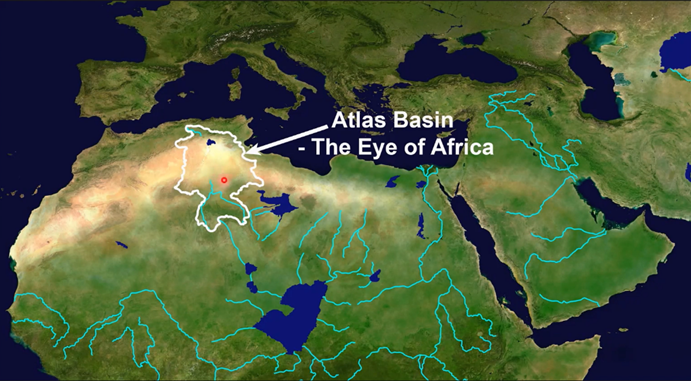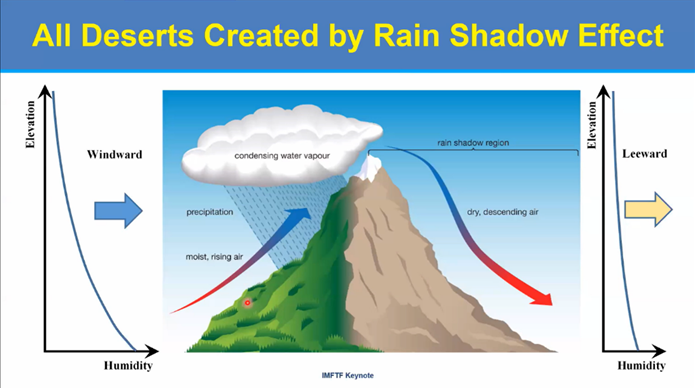At 21:00 on December 3, Beijing time, the Worldwide Energy University Network held its sixth keynote report through an online conference. This conference was organized by the International Multiphase Flow Technology Forum.
The speaker is Professor Holden Zhang, majoring in petroleum engineering at the University of Tulsa, and the topic is "Water Cycle Stability – The Sahara Desertification and Cure". Hosted by Professor Cem Sarica from the University of Tulsa, more than 30 experts, scholars and graduate students from 8 countries and regions around the world participated in this academic salon.
At the beginning of the conference, Professor Cem Sarica first introduced Professor Holden Zhang's academic background, professional expertise, social contribution, field influence, etc. Professor Holden Zhang has long been engaged in research on fluid mechanics, heat and mass transfer, multiphase flow, artificial lift, flow assurance, numerical calculation, experimental technology, etc. In recent years, he has also done a lot of work on the stability of environmental atmosphere and water cycle, and proposed improvement measures for desert greening.
In the keynote report, Professor Holden Zhang enumerated natural disasters such as wild fires and floods caused by uneven water circulation around the world. A detailed study of the rivers and water flow in the Mediterranean area was carried out. He introduced the green Sahara 6000 years ago, and confirmed the existence of human activities and civilization.
Subsequently, the impact of surface precipitation and evaporation on the Sahara region was proposed. Affected by the geomorphic features and wind, a "rain shadow effect" was formed on one side of the mountains, leading to the formation of primitive deserts. Professor Holden Zhang introduced that as the uneven water cycle accumulates over time, the area has become drier and drier, thus forming today's Sahara Desert. Finally, Professor Holden Zhang also gave specific suggestions on the greening of the Sahara, pointing out that diversion of water to the Atlas Basin can build a good water cycle and promote the return of North Africa, West Asia and the Mediterranean to green. The report is in-depth and simple, with rich and vivid content, and the audience has a comprehensive understanding of the important role of the water cycle in Sahara desertification and control. Unknowingly, the 60-minute report was over, and then was the questioning session. The enthusiastic audience raised questions enthusiastically, and Professor Holden Zhang answered them in detail. The report meeting ended successfully in 30 minutes of lively discussion.



Holden Zhang has a PhD in Fluid Mechanics, an MS and a BS in Thermal Energy Engineering. He is currently Williams Chair Professor of Petroleum Engineering and Director of the Tulsa University Artificial Lift Projects (TUALP). Dr. Zhang authored the book “Revive Eden – Green Sahara Now” which explains the start and gradual spread of the Sahara and its impact on West Asia and the Mediterranean regions, as well as how to flip over it to a healthy water cycle. He is the receiver of the SPE 2020 Production and Operations Award. In 1993 and 1994, as an Alexander von Humboldt Research Fellow, he conducted researches at the Max Planck Institute of Fluid Mechanics and the German Aerospace Research Establishment in Göttingen, Germany.
The " Worldwide Energy University Network " is a voluntary global alliance composed of many research universities that share common strategic goals in the field of energy research, innovation, education and internationalization. The network was initiated by the founding university China University of Petroleum (Beijing) in 2018, and the membership of the alliance will grow to 31 universities in 2020.
The International Multiphase Flow Technology Forum was initiated by China University of Petroleum (Beijing) and was established on January 10, 2020 based on the Worldwide Energy University Network platform. Up to now, the members of the IMFTF committee come from 13 famous universities in 7 countries around the world. The forum aims to bring together experts in the field of multiphase flow from around the world to discuss the development of multiphase flow technology in the industrial field, and jointly conduct scientific research in the face of technical problems, so as to clarify the future development direction of multiphase flow technology for young scholars.